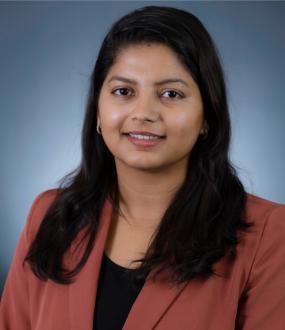The primary objective of this project focused on aligning with Sustainability Next's Education Strategies, particularly the initial strategy aimed at enhancing sustainability awareness in software engineering. There were three main goals: Enhancing Sustainability Awareness, Providing Practical Application Opportunities, and Developing Skills for Sustainable Software Development. Within these overarching goals, there were subgoals. In regards to Enhancing Sustainability Awareness, Dr. Roy and her team aimed to raise awareness of sustainability principles among students by integrating the United Nations Sustainable Development Goals (SDGs) into the curriculum. This involved teaching the importance of sustainability in software development and the impact of software on the environment and society. To successfully Provide Practical Application Opportunities, they incorporated practical projects and coursework that focused on sustainable software engineering practices. These projects included tasks like computing the energy consumption and carbon footprint of code, designing energy-efficient algorithms, and implementing sustainable solutions in real-world scenarios. For the final goal, Developing Skills for Sustainable Software Development, the team aimed to equip students with the necessary tools and techniques to integrate sustainability into their software development practices. This included training on efficient coding, optimized cloud deployment, and evaluating the social and environmental implications of their projects. By focusing on these three key goals, their project directly supported the broader aims of Sustainability Next's Education Strategies, which seeks to embed sustainability into all aspects of education and foster a culture of sustainability across the campus.
Dr. Roy and her team did not make any major changes to their plans across it's implementation as they had already predetermined which semesters would be control and intervention and created course content accordingly. They were planning for three courses, CS 3300, 3311, and 3312. They prepared the intervention materials for all three, however as Dr. Roy has not yet taught 3312, and is not assigned to teach it in Fall 2024 or Spring 2025, that portion of the intervention is currently on hold.
Students demonstrated increased awareness of sustainability issues and the importance of integrating sustainability into software development. They learned to consider the environmental and social impacts of their projects, aligning with the United Nations Sustainable Development Goals (SDGs). Students also developed valuable skills in writing energy-efficient code, optimizing cloud deployments, and evaluating the social and environmental implications of their work. These skills are crucial for developing sustainable software solutions. The project encouraged students to think critically about the sustainability of their software projects. They learned to analyze and evaluate different approaches to minimize the environmental impact and maximize social benefits. Through practical assignments and projects, students had the opportunity to apply their knowledge in real-world scenarios. This hands-on experience reinforced their learning and provided them with a practical understanding of sustainable software engineering. In order to assess the impact, Dr. Roy filed an Institutional Review Board (IRB) application for all three courses involved in the project. This approval allowed her to collect and analyze data on student learning and perceptions. She also created and administered surveys to assess the perceived impact of the project on student learning. The surveys included questions on students' awareness of sustainability, their confidence in applying sustainable software development principles, and their overall learning experience.
Dr. Roy plans to present the results of this research at conferences such as the Special Interest Group on Computer Science Education (SIGCSE) and the International Computing Education Research (ICER) conference. The work was also presented briefly at the USG T&L conference.

"Through the course design and redesign process, I gained valuable insights and learned several key lessons that have significantly influenced my approach to course design and sustainability/SDG teaching. I learned to be more strategic in planning course designs, considering long-term sustainability and the potential for scaling successful interventions. This includes developing comprehensive plans that can be adapted by other instructors and integrated into various courses. The experience also underscored the importance of collaboration and advocacy. I now place greater emphasis on building coalitions with other instructors and stakeholders to promote the integration of sustainability principles. Sharing successes and demonstrating the benefits of such interventions helps in gaining broader acceptance. Finally, my approach to teaching sustainability has become more flexible and adaptable. Recognizing the challenges of incorporating sustainability in specific course settings, I now focus on identifying opportunities to integrate these principles in various contexts, ensuring that they become a fundamental part of the educational experience."